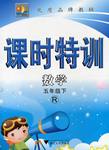阅读理解。
When I was six years old, my mom told me that I could find anyone's number in the phone book. I
used to look through the phone book for hours trying to find Michael Jordan's phone number. When I
couldn't find it, I just dialed seven numbers. When someone answered, I'd ask, "Is that Michael Jordan?" Obviously, I always had the wrong number.
A year later I started playing basketball at my local recreation center. It was very big. I never thought
in my wildest dreams that a basketball court could be inside a building. The recreation center had a
special smell in it, sort of like hot rubber. I guessed it was from the shoes hitting the floor so fast and hard. The atmosphere on the court was carefree. Our biggest excitement of the day was when we actually
made a shot. We celebrated wins over ice cream at a fast food restaurant.
I got good at it, and my confidence grew. I played it all the time until the sixth grade. As soon as
junior high school came, I stopped playing basketball and focused on school. When senior high school
started, I tried out for the school team and made it. We worked hard. Every week we did 300 push-ups
and 300 sit-ups on our own. Our coach encouraged the sit-ups to keep stomach power, because it gave
us so much control when we were playing basketball. If we didn't want to do the sit-ups and push-ups,
we could practice dribbling (运球) and shooting more. It's just us, the ball, the court and the net. But
don't take my word for it. See for yourself. After all, I'm just one kid playing the game.
1. From Paragraph 1 we know that ____.
A. the author's mother gave him some wrong phone numbers
B. the phone book contained everyone's phone number except Michael Jordan's
C. the author wanted to contact Michael Jordan very much
D. the author didn't know how to use a phone at that time
2. What is Paragraph 2 mainly about?
A. The days of the author playing basketball at a recreation center.
B. The author's excitement of making shots when playing basketball.
C. The days before the author went to senior high school.
D. The author's happy childhood with his teammates.
3. What surprised the author most at the recreation center?
A. That it was very near to his home.
B. That there was a basketball court inside the building.
C. That there was a special smell in it.
D. That there was a fast food restaurant in it.
4. The author's coach encouraged them to do sit-ups because ____.
A. it is the basic preparation to play basketball
B. it is more useful than dribbling and shooting
C. it is the only way to make people stronger
D. it helps keep stomach power
5. What's the author's purpose in writing this passage?
A. To introduce some skills in playing basketball.
B. To tell us about his dream of becoming a basketball star.
C. To introduce his own experience of playing basketball.
D. To tell us how to balance playing basketball and studying.

 名牌中学课时作业系列答案
名牌中学课时作业系列答案 明天教育课时特训系列答案
明天教育课时特训系列答案 浙江新课程三维目标测评课时特训系列答案
浙江新课程三维目标测评课时特训系列答案 周周清检测系列答案
周周清检测系列答案